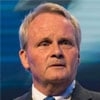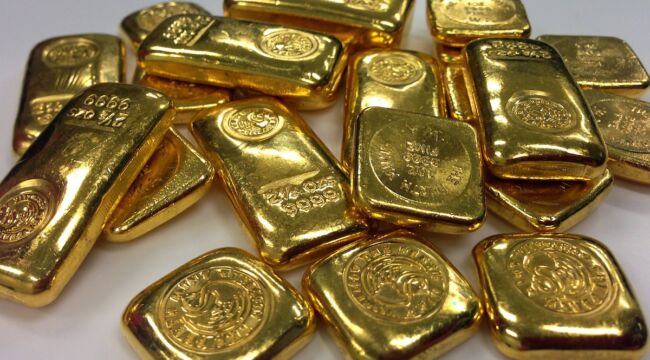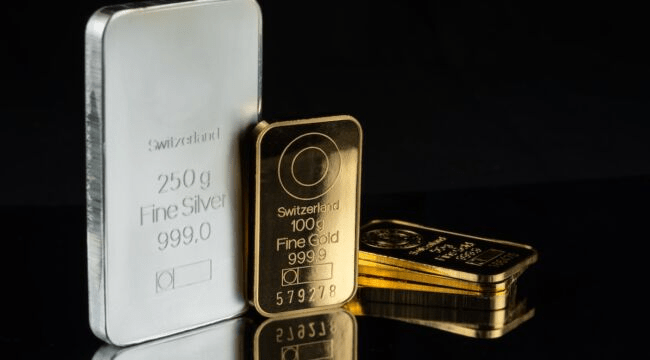from Liberty and Finance
Ruining the Money
by Larry Reed
GoldSeek
 By the start of the 20th Century, governments and their diplomats around the world dubbed the (Turkish) Ottoman Empire “the sick man of Europe.”
By the start of the 20th Century, governments and their diplomats around the world dubbed the (Turkish) Ottoman Empire “the sick man of Europe.”
Conventional wisdom, reflected in high school and college history texts to this day, cites these contributing factors in the 500-year decline of what was once one of the biggest and most powerful domains in the world: a failure to industrialize and modernize; internal strife; conflict with neighbors, particularly Russia; and siding with Germany in World War I.
All those factors played a role in the Empire’s formal end in 1922, when it was dismantled. The smaller nation of Turkey emerged in its place. But historians, who often prefer to tell history in political and military terms, probably underestimate the role of currency debasement (a.k.a.. inflation) in the demise of the Ottomans.
Gold: The Everything Hedge
by James Rickards
Daily Reckoning
 It’s a subject we analyze continually, and we have recommended gold as part of a sound investment portfolio for years. Today the dollar price of gold is hovering near all-time highs over $3,300 per ounce.
It’s a subject we analyze continually, and we have recommended gold as part of a sound investment portfolio for years. Today the dollar price of gold is hovering near all-time highs over $3,300 per ounce.
Gold has been on a tear lately. It was $1,830 as of October 5, 2023. At today’s prices, that marks a 75% surge in just 18 months. Gold has outperformed stocks by a wide margin this year, but it has also outperformed stocks for the past twenty-five years. Gold was around $250 per ounce in 1999. The gain since then is 1,180% or almost 12 times the starting price.
This is not the first bull market for gold. In the gold bull market of 1971 to 1980, gold rose 2,185%. In the gold bull market of 1999 to 2011, gold rose 670%. There were notable gold bear markets from 1981 to 1999 and again from 2012 to 2015.
Buckle Up: Inflation is Going to Soar… Again
from King World News
 Buckle up because is about to soar…again.
Buckle up because is about to soar…again.
April 24 (King World News) – Peter Boockvar: According to the Chinese Ministry of Commerce spokesman speaking in Beijing today, “any reports on development in talks are groundless.” So, they are not really talking and what would any deal look like?
The Fed’s Beige Book came out with perfect timing as it captures the response of businesses and consumers to the tariff onslaught. “Economic activity was little changed since the previous report, but uncertainty around international trade policy was pervasive across reports. Just five Districts saw slight growth, three Districts noted activity was relatively unchanged, and the remaining four Districts reported slight to modest declines.” Sounds like a no growth economy.
Trump’s Inflationist Monetary Policy Favors Wall Street Over Main Street
by Ryan McMaken
Mises.org
 The Trump administration has tried to cultivate a reputation for preferring “Main Street over Wall Street.” Unfortunately, this image is belied by the administration’s push for artificially low interest rates and monetary inflation. By embracing these policies, Trump has put himself squarely in the camp of “Wall Street over Main Street.”
The Trump administration has tried to cultivate a reputation for preferring “Main Street over Wall Street.” Unfortunately, this image is belied by the administration’s push for artificially low interest rates and monetary inflation. By embracing these policies, Trump has put himself squarely in the camp of “Wall Street over Main Street.”
This is because a policy of monetary inflation and low interest rates favors wealthy owners of assets while imposing higher prices and fewer income gains on people of more modest means. The Trump policies of inflation and low interest rates fuels levels of inequality far greater than would exist under relatively free market conditions. This is because the low-interest-rate policy increases disposable income far more rapidly for people at higher income levels than it does for people at lower income levels.
Major Breakdown in the U.S. Dollar Signals Trouble Ahead
by Jesse Colombo
GoldSeek
 There are numerous signs that the U.S. dollar is on the cusp of a new bear market—a development that is very bullish for commodities, especially gold and silver.
There are numerous signs that the U.S. dollar is on the cusp of a new bear market—a development that is very bullish for commodities, especially gold and silver.
Last week, I published a piece titled “The U.S. Dollar Stands at a Major Crossroads,” where I explained that the U.S. Dollar Index—a key gauge of the dollar’s value against a basket of major world currencies—was sitting right on a critical long-term support level at 100.
This level had held firm for years and sparked multiple sharp rebounds in the past. I warned, however, that a decisive break below it would confirm a deeper dollar bear market—an event that would be highly bullish for commodities like gold and silver.
Trump Wants the Fed to Pump More Easy Money
by Ryan McMaken
Mises.org
 For a few days during the early weeks of the current Trump administration, it appeared that the Trump team might actually try to rein in the Federal Reserve. Trump and Elon Musk hinted that they would push for an audit of the Federal Reserve, and they even suggested that they would bring in Ron Paul to serve as an advisor on the matter. More recently, though, it seems that a meaningful critique of the Fed is going the way of that imaginary trillion dollars that the Department of Government Efficiency has already given up on cutting from the federal budget. In other words, the hinted-at Fed audit has disappeared from the Trump “to do” list.
For a few days during the early weeks of the current Trump administration, it appeared that the Trump team might actually try to rein in the Federal Reserve. Trump and Elon Musk hinted that they would push for an audit of the Federal Reserve, and they even suggested that they would bring in Ron Paul to serve as an advisor on the matter. More recently, though, it seems that a meaningful critique of the Fed is going the way of that imaginary trillion dollars that the Department of Government Efficiency has already given up on cutting from the federal budget. In other words, the hinted-at Fed audit has disappeared from the Trump “to do” list.
Even worse, it now is becoming clear that if the Trump team is going to attack the Fed, it’s because Trump wants more inflation from the Fed, not less. Since he was sworn in, Trump has attacked the current Fed chairman Jerome Powell at least three times for not forcing down interest rates enough. He’s done this in spite of the fact that the Fed cut rates by 100 basis points over the past year. Specifically, last fall, the Federal Open Market Committee (FOMC) reduced the target rate three times, lowering it from 5.5 percent to 4.5 percent. This was a major reduction, especially since it occurred during a period when it was hardly clear that CPI inflation was falling sustainably.
The Deeper Dollar: Evidence of a White House Conspiracy to Collapse the Dollar
by David Haggith
GoldSeek
 While I generally lean away from conspiracy theories and certainly don’t want to risk creating one of my own that turns out to be wrong, I couldn’t shake a couple of dark thoughts last week:
While I generally lean away from conspiracy theories and certainly don’t want to risk creating one of my own that turns out to be wrong, I couldn’t shake a couple of dark thoughts last week:
1) There is no way the nation’s new Treasury Secretary, Scott Bessent, and those working with him could not know that trashing all trade around the world would trash the US dollar as the global TRADE currency as well. Greatly reduced trade on a global scale means greatly reduced need for a trade currency. Therefore, much less demand for the US dollar, especially when all the currency troubles originate from US actions. It’s really as simple as that.
That also had to mean greatly reduced demand for those US money bags we call “Treasuries,” which banks actually use to move the currency that moves the world, and that could even crash the national debt. How did Bessent & Co. not see the risks of that immensity coming when I predicted this as a likely outcome back in January, before Trump was even inaugurated, based on what he promised to do with tariffs? Bessent, after all, oversaw a big hedge fund that traded Treasuries all the time. So, how could he not see this was coming from the hugely broad tariff war he was planning with the president?
A Stagflation Survival Guide
by Adam Sharp
Daily Reckoning
 Stagflation is a grim economic diagnosis. High inflation, stagnant growth, and elevated unemployment.
Stagflation is a grim economic diagnosis. High inflation, stagnant growth, and elevated unemployment.
The United States from 1972-1982 is the textbook case. Inflation raged as high as 14%, real economic growth was practically non-existent, and unemployment reached 9.7%.
Now the threat of stagflation once again looms large. Inflation is set for a comeback, growth is slowing, and widespread layoffs have begun.
Today we’ll explore how to survive and even thrive during what will likely be a sustained period of stagflation.
The Anatomy of a Bond and Currency Crisis
from Global Macro Monitor
 It was the autumn of 1996 when I arrived in Sofia, Bulgaria. I was working for a major Wall Street investment bank and had a clear and urgent mission to assess the sustainability of Bulgaria’s sovereign debt. The atmosphere in the capital was tense; the economic and political uncertainty hung thick in the air. The government was hanging by a thread while struggling to roll over its maturing Treasury bills. The early signs of a major burst of inflation were no longer subtle, as confidence in the Bulgarian currency was rapidly diminishing. In a series of high-level meetings with senior officials, one stood out: a particularly strained and revealing encounter at the Bulgarian National Bank (BNB), where the full scale of the crisis came into sharp focus.
It was the autumn of 1996 when I arrived in Sofia, Bulgaria. I was working for a major Wall Street investment bank and had a clear and urgent mission to assess the sustainability of Bulgaria’s sovereign debt. The atmosphere in the capital was tense; the economic and political uncertainty hung thick in the air. The government was hanging by a thread while struggling to roll over its maturing Treasury bills. The early signs of a major burst of inflation were no longer subtle, as confidence in the Bulgarian currency was rapidly diminishing. In a series of high-level meetings with senior officials, one stood out: a particularly strained and revealing encounter at the Bulgarian National Bank (BNB), where the full scale of the crisis came into sharp focus.
Central Banker Confession
What I remember most vividly was sitting across from a senior BNB official. When I asked how the government would roll over its large tranches of domestic Treasury bills coming due, he looked me in the eye and said, “Gregor, we will not let the government default.”
Stagflation Risks: Why Retirees Need to Reassess Their Portfolios Now
Understand the historical context of stagflation and its potential impact on today’s retirees. Explore the importance of proactive financial planning and strategic investment choices to mitigate risk.
by David Marra
The Street
 It’s a term we’re hearing more and more these days, yet something that hasn’t been a feature of the U.S. economy in fifty years, since the 1970s: stagflation. Unfortunately, a whiff of stagflation is in the air again and those nearing retirement and in retirement should pay attention.
It’s a term we’re hearing more and more these days, yet something that hasn’t been a feature of the U.S. economy in fifty years, since the 1970s: stagflation. Unfortunately, a whiff of stagflation is in the air again and those nearing retirement and in retirement should pay attention.
Many of today’s retirees will remember that economically painful decade. For those who either weren’t alive yet, were too young to remember or for those who need a refresher (pretty much everyone), it’s worth devoting some time to understanding what stagflation is and what it means for investors.
The word stagflation comes from combining the words “stagnation” and “inflation.” All of us have become familiar with inflation from the experience of the past few years – a sustained increase in the general price level of goods and services in an economy. Generally, when inflation is high it is because the economy is overheated relative to its capacity. That is why inflation is most often associated with a robust, growing economy, like we’ve had the past few years.
